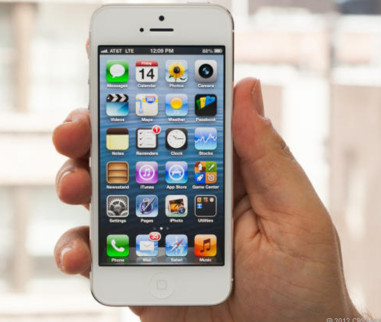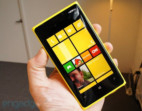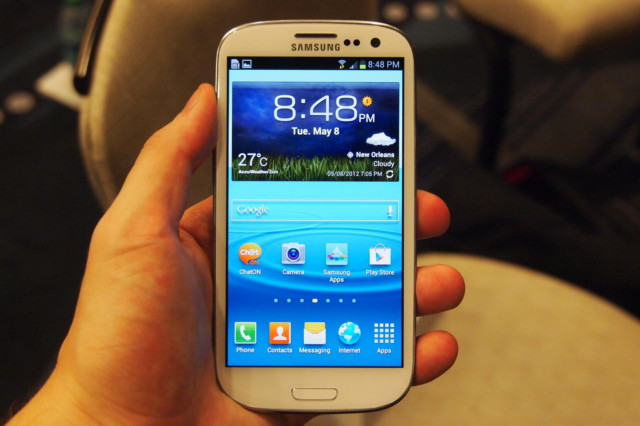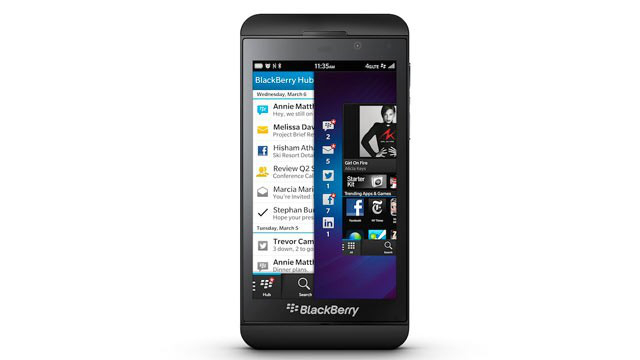
Dubai January 30 marks a watershed for BlackBerry as it launched a very un-BlackBerry like full-touch phone (Z10) to run on the new OS 10 in six countries, including the UAE.
The new device is speedier, has a 8-MP camera and a feature called Time Shift to go creative on images besides sporting a game-changing voice BBM (company is in talks with authorities in the UAE on allowing it here) and the ability to keep work and personal identities separate on the phone.
But even as BlackBerry goes all out to pull in the iPhone-S3 crowd, the big question is — will this be a game changer for BB, or has the one-time icon left it too late?
Some feel the timing is just right. The new phone hits the market just as the iPhone is showing signs of slowing and the market is looking for something new apart from the iPhone and S3.
There is some user fatigue that plays into the longevity of some of these platforms. As Fatima Saud, a university student in Dubai said “The iPhone and the S3 are not interesting anymore. I am looking for something more.”
Ashish Panjabi, COO of Jacky’s Electronics feels this is make or break time for BlackBerry. “A much needed overhaul of the operating system should put them at par with other systems. However, If BlackBerry 10 has to be successful, it will have to be about more than just BBM.”
In recent years BlackBerry and Nokia (another powerhouse) have found themselves increasingly marginalised as Apple (IOS) and Samsung Galaxy S3 (Android) raced to the top with newer, bolder and smarter phones that were built around a great ecosystem of apps, that held instant appeal for today’s generation.
Hitting back
But it looks like things are set to change soon. While BlackBerry is going radical with an industrial design touchscreen beauty, Nokia has already launched its brilliant Lumia range on the Windows 8 platform.
Experts predict this year may see a major shift in the smartphone sector. “2013 will see a bloody battle for smartphone vendors and operating systems,” said Panjabi. “This could be the year we see stalwarts in the smartphone industry marginalised or worse, eliminated. Apple and BlackBerry have potentially got the most to lose if the other operating systems manage to innovate more,” said Panjabi on his blog.
Niranjan Gidwani, Deputy CEO, Eros Group also places his bet on operating software defining tomorrow’s leaders. “The brand partnering with the strongest operating system will have an upper hand,” he said.
How they size up?
Sizing up the big four (Apple, Samsung, BlackBerry and Nokia) Alexander McNabb, Director of Spot On PR, who hosts UnWired (a tech radio show) on Dubai Eye said, “The iPhone remains the most sophisticated and developed platform/ecosystem, but it’s really locked in to Apple — the strength of Android is its openness.
“However, Android can get sloppy and the lack of consistency through versions — and particularly upgrades — can be infuriating,” he said.
McNabb is not bullish on the BlackBerry though. “I don’t see them winning back losses. It would be remarkable if they did and what I have seen of them has not been remarkable,” he said.
He feels Nokia could be the dark horse. “I think the Lumia and Win-Phone 8 are appealing for ‘power users’ who don’t want to go Apple. It’s certainly the third ecosystem right now and the one to watch. Microsoft doesn’t mess around and they’re hardcore about this. Win-Phone 8 is a surprisingly smart OS, clean, swift, functional and capable. But Nokia can’t win back on a one or two phone strategy, so 2013 is going to be important for them,” he said.
Given the fast-changing dynamics, experts say most will have to rethink their strategies. “Apple may well have to rethink whether they need to shift strategy and adopt a differentiated approach if they want to get the customer who can spend between Dh1,000 and Dh2,000,” said Panjabi. “Apple targets primarily the top end of the market. Android has gained market share faster than others and apart from Galaxy S3 and Galaxy Note 2, it has a basket of phones running on Android in the sub Dh500 price bracket as well.”
He also feels Nokia can make a comeback. “For Nokia, it’s all upside with the Windows 8 Lumia.The Lumia 920 is a complete smartphone and no other device actually quite compares with it at this stage. For Nokia, they should grow well in 2013.”
Samsung will rule?
Gidwani, however feels Samsung will rule the roost. “Samsung will continue to strengthen its partnership with Google and other platforms. Currently Samsung is collaborating with Intel for a joint venture on a new operating system to be called ‘Tizen’. Samsung is also ready with the Windows 8 mobiles, and will go aggressive if and when this category begins to grow. Google is also expected to release the new version of Android called ‘Key Lime Pie’. In 2013, Samsung is also scheduled to launch the much awaited Galaxy S4 and the Note 3,” he said.
On Nokia and BB, he said: “Nokia is back with Microsoft, but it is early to state whether this will work. This collaboration is definitely a make or break for Nokia. As far as RIM goes one has to see how the OS 10 looks.”
Little room at the top
So it does look like we are in for a no-holds-barred battle for the top spot. However, there’s very little room at the top. “There is space for only three smartphone platforms and one will have to give way eventually. Rest assured, Apple, Google, Microsoft and RIM won’t be resting on their laurels this year,” said Panjabi.
Future predictions
Global analyst firm International Data Corporation’s (IDC) projects Android share dropping to 63.8% by 2016 and iOS at 19.1%, with iPhone becoming a premium, high-priced option. If Apple wants to grow this share, IDC says it will need to consider lower-priced models. BlackBerry would hang on to its share at around 4.1% (4.7% in 2012), but the real movement would be in Windows Phone from a mere 2.6% share in 2012 to 11.4% in 2016.














